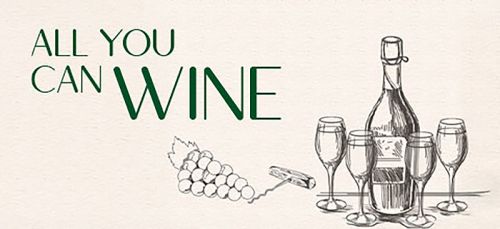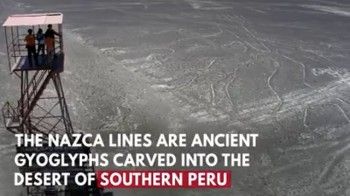- Peru Guide
- Peruvian Visa Types
- Public Holidays & Festivals
- Peru Info
- Culture & Entertainment
- Legal Stuff
- Customs Regulations & Info
- How many days did I get?
- Tourist Visa extension in Peru
- Peruvian Overstay Fine
- International Document for Antecedentes Peru
- Paying Administration Charges
- Permit to Sign Contracts
- Interpol - Ficha de Canje
- Travel Permit
- Subsanacion - Submitting documents
- Extending a Migraciones deadline
- Residence visa extension
- Renewal Carné de Extranjería
- Update Migraciones information
- Carné replacement
- Marrying in Peru
- Driver's License in Peru
- Police Clearance Certificate Peru
- Travel Authorization for Minors
- Finding a Job in Peru
- Domestic Workers in Peru
- Labor Regulations Peru
- Air Passenger Rights
- Safety, Security & Travel Advice
- Shopping in Peru
- Stay Connected
- Business Guide
- Earthquakes
- Emergencies & Help
- History of Peru
- Education, Teaching & Schooling
- Glossary of Terms
- Lima Guide
- Travel & Sights
- Food
- Money
- Events
- Opinion
- Media
- Peru Guide
- Peruvian Visa Types
- Public Holidays & Festivals
- Peru Info
- Culture & Entertainment
- Legal Stuff
- Customs Regulations & Info
- How many days did I get?
- Tourist Visa extension in Peru
- Peruvian Overstay Fine
- International Document for Antecedentes Peru
- Paying Administration Charges
- Permit to Sign Contracts
- Interpol - Ficha de Canje
- Travel Permit
- Subsanacion - Submitting documents
- Extending a Migraciones deadline
- Residence visa extension
- Renewal Carné de Extranjería
- Update Migraciones information
- Carné replacement
- Marrying in Peru
- Driver's License in Peru
- Police Clearance Certificate Peru
- Travel Authorization for Minors
- Finding a Job in Peru
- Domestic Workers in Peru
- Labor Regulations Peru
- Air Passenger Rights
- Safety, Security & Travel Advice
- Shopping in Peru
- Stay Connected
- Business Guide
- Earthquakes
- Emergencies & Help
- History of Peru
- Education, Teaching & Schooling
- Glossary of Terms
- Lima Guide
- Travel & Sights
- Food
- Starter & Appetizer
- Sandwiches
- Soups
- Main Courses
- Salsas, Sauces & Dips
- Desserts
- Snacks
- Drinks & Beverages
- Peruvian Cheese
- Fruits
- Vegetables
- Aji - Chili Peppers
- Grains, Coffee, Beans & Nuts
- Common Herbs
- Other Ingredients
- Money
- Peru Guide
- Peruvian Visa Types
- Public Holidays & Festivals
- Peru Info
- Culture & Entertainment
- Legal Stuff
- Customs Regulations & Info
- How many days did I get?
- Tourist Visa extension in Peru
- Peruvian Overstay Fine
- International Document for Antecedentes Peru
- Paying Administration Charges
- Permit to Sign Contracts
- Interpol - Ficha de Canje
- Travel Permit
- Subsanacion - Submitting documents
- Extending a Migraciones deadline
- Residence visa extension
- Renewal Carné de Extranjería
- Update Migraciones information
- Carné replacement
- Marrying in Peru
- Driver's License in Peru
- Police Clearance Certificate Peru
- Travel Authorization for Minors
- Finding a Job in Peru
- Domestic Workers in Peru
- Labor Regulations Peru
- Air Passenger Rights
- Safety, Security & Travel Advice
- Shopping in Peru
- Stay Connected
- Business Guide
- Earthquakes
- Emergencies & Help
- History of Peru
- Education, Teaching & Schooling
- Glossary of Terms
- Lima Guide
- Travel & Sights
- Food
- Starter & Appetizer
- Sandwiches
- Soups
- Main Courses
- Salsas, Sauces & Dips
- Desserts
- Snacks
- Drinks & Beverages
- Peruvian Cheese
- Fruits
- Vegetables
- Aji - Chili Peppers
- Grains, Coffee, Beans & Nuts
- Common Herbs
- Other Ingredients
- Money
- Lima Guide
- Lima History
Lima History
The history of Lima does not only begin with the foundation of the colonial city by Francisco Pizarro in 1535. The area, where we today find the Peruvian capital, was already inhabited many thousands of years before that. The time before the Spanish colonization is full of rich and unique cultures, but also reflects a long process where humankind developrd its skills and made the desert stripe between the Pacific Ocean and the Andes a habitable place and a green oasis.
The first inhabitants, who settled in the Lima area already around 10.000 BC, were fishermen and hunters and gatherers who slowly discovered and developed agriculture. From today's Ancón in the north to Pucusana in the south and along the valleys of the three rivers Chillón, Rimac and Lurín, which are still important to this day, small settlements with very simple huts arose between 8000 BC and 6000 BC. Archeological findings of stone instruments along the Chillón River can be associated with the Andean lithic period (approx. 7500 BC) and are so far the oldest proof of human existence in Peru. The first genuine communities were in the Chilca-Pucusana-San Bartholo area located in the south of today's (around 5500 BC to 4500 BC) and in the Ancón area (in the north).
El Paraiso - The Paradise
Lima HistoryOne of the first big settlements and ceremonial centers in the area of today's Lima was El Paraíso (The Paradise). For decades, the complex was dated to around 2200 BC, however, new findings suggest that it might be even 1000 or 2000 years older.The Chavín Culture (1200BC-200AD)
Lima HistoryThe Chavin civilization is one of the great pre-Columbian cultures of Peru. It emerged in the northern Andean highlands in today’s Huari province in the Ancash region around 1200 BC. While for the first few hundreds of years the Chavin society was limited to the Andean region where they developed, later their influence spread to other civilizati...The Maranga or Lima Culture (150AD-700AD)
Lima HistoryAfter the decline of the Chavin, a new civilization arose in the area of today’s Lima around 150 AD which brought significant progress and changes to the region. The Maranga Culture, also known as the Lima Culture, at first inhabited only the area of today's districts of Callao, La Punta, Bellavista and La Perla. However, adapting and refining t...The Wari Culture (700AD-1100AD)
Lima HistoryThe Wari, also known as Huari, had their origin in the Ayacucho region. Being presumably the first culture to use military force to conquer the surrounding civilizations, they soon reigned over much of the highlands and coast of modern Peru. The Wari subdued all other cultures forbidding any practice of former traditions. They settled at strateg...The Chancay & Ichma Culture (1100AD-1440AD)
Lima HistoryAfter the breakup of the Wari Empire, an era of kingdoms and regional confederations in the Lima region began. Social groups constituted regional states (characteristic for this time period), but these changes first brought turbulent times with social agitation, political and cultural instability to the region.The Incas (from the early 13th century)
Lima HistoryThe Incas, the most well-known pre-Hispanic culture in Peru, were only the last highly advanced culture in a series of great ancient Peruvian civilizations. The Incas arose in the early 13th century in the Cuzco region where they built up a small city state named Qosqo (Cuzco). They originally represented one of these small and relatively minor ...Foundation and Colonization (1535-1821)
Lima HistoryAfter taking Cusco, the capital of the Inca Empire, Francisco Pizarro started looking for a suitable place to establish "his" city. In the dessert stripe between the Pacific Ocean and the Andes in the fertile valley of the Rimac River (and two other rivers nearby that provided fresh water) he found the place he was looking for.The Independence (1821)
Lima HistoryBy the early 19th century Lima was slowly losing its influence. Other regions of the Spanish Empire in South America grew in importance and began to rebel against the Spanish colonization. While Spain was invaded by Napoleon and was busy defeating its borders, most Spanish colonies in South America took the advantage of these circumstances and s...The War of the Pacific (1879-1883)
Lima HistoryThe peace and slow recovery of Lima was disrupted by the beginning of the "War of the Pacific" (1879 to 1883) or also known as "Saltpeter War". Originally it grew out of a dispute between Chile and Bolivia over the mineral rich territory of the Atacama dessert and Bolivia's access to the Pacific Ocean.The 20th Century - Lima History
Lima HistoryBy the end of the 19th century the exploitation of guano on the islands off the coast and the recovering economy brought the city of Lima again decent wealth and prosperity. From the 1890s to the 1920s Lima went through a process of urban renewal and expansion.Peru Newsflash
Los 3 Patas del Peru
Marca Perú, the official country brand that promotes Peru’s identity, culture, and heritage at home and…Victorinox launches third Peru-themed pocketknife collection
The renowned Swiss company Victorinox, famous worldwide for its high-quality and extremely functional…Lima’s New Airport Terminal to open in June
After many delays, the new terminal of Lima’s Jorge Chavez International Airport is finally operational. On…New lizard species discovered in Peru
There is still so much new to find out about and see in Peru. Just recently Peruvian scientists discovered a…
Peru Event Calendar
Upcoming Events in Peru
17Oct24Oct31OctMore in the Peru Event & Entertainment Calendar
Latest Content...
- Tourist Attractions & Sights in Peru
Machu Picchu
- International Schools in Peru
International Christian School of Lima - ICS Lima
- Peruvian Visa Types
Peruvian Digital Nomad Visa
- Laws, Norms, Legal Codes & Decrees
Legislative Decree No. 1582 (Modification of the Peruvian Foreigner Law, Nov 2023)
- Peruvian Cheese
Queso Rojo de Lluta
- Peruvian Cheese
Peruvian Queso Andino
- Peruvian Cheese
Peruvian Quesillo
- Peruvian Cheese
Peruvian Queso Mantecoso
- Peruvian Cheese
Peruvian Queso Paria
- Peruvian Cheese
Peruvian Queso Fresco
- Legal Stuff
Extension of a Migraciones deadline
- Legal Stuff
Subsanacion - Submitting documents
- Legal Stuff
Replacement for a lost, stolen or damaged carné
- Legal Stuff
Renewal of the Carné de Extranjería
Latest Video
Long Reads...
- Peruvian Archaeology
The Mystery of the Nazca Lines in Peru
In the 1920s, when people first flew across southern Peru, they made an astonishing discovery. Stretching below them,… - Peruvian Personalities & Founders
Francisco Pizarro González (1474-1541)
Francisco Pizarro, a peasant from Spain, was one of the least well-equipped conquerors in history. However, in the name… - Peruvian Archaeology
The colorful Fabrics and Textiles of Peru
Europe’s first knowledge of Peruvian textiles was acquired following the Spanish invasion of Peru in 1532, when the… - Peruvian Legends, Myths & Tales
The Jeweled Frog and the Condor
By a quiet pond, at the side of a cloud-topped mountain in Peru, lived a small green frog and his large green family.… - Peru Info
Peruvian Economy
The Peruvian economy is an emerging, social market economy highly dependent on foreign trade and classified as an upper…
Contact us | Editorial Ethics | Support | T&C | Copyright | Privacy | Discussions & Submissions | Cookies Policy | GDPR | CCPA | DMCA








































